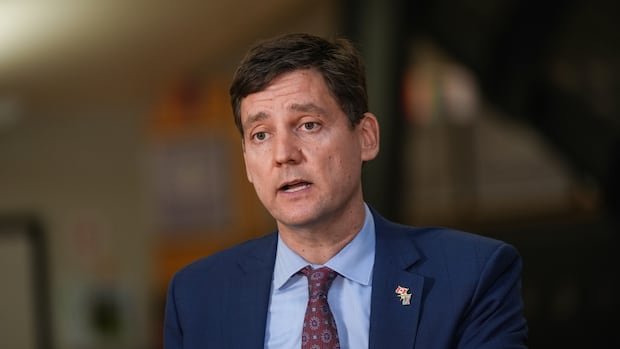In an unexpected announcement, Premier David Eby has called for the discontinuation of Canada’s temporary foreign worker (TFW) program, attributing the overcrowding of homeless shelters and food banks to Ottawa’s problematic immigration policies. Eby expressed his views during a separate event in Surrey, B.C., on Thursday, stating that the current TFW program is ineffective and should either be terminated or substantially reformed. He emphasized the strain on social services and infrastructure caused by an immigration system that leads to high youth unemployment and limits the capacity for educational and housing development.
This stance by Eby, a member of the B.C. NDP, aligns with federal Conservative leader Pierre Poilievre’s recent call to abolish the program. Poilievre, speaking at a press conference in Mississauga, Ont., accused temporary foreign workers of displacing Canadian youth from employment opportunities. The TFW program permits Canadian employers to hire foreign workers for temporary positions when local candidates are unavailable.
Despite the program’s utility, Eby raised concerns about exploitation within the TFW system, citing instances of documented fraud in Surrey. Neera Agnihotri, whose firm was falsely implicated in forged Labour Market Impact Assessments (LMIAs), highlighted the prevalence of fraud orchestrated by recruiters and immigration consultants. Scammers have exploited foreign workers by selling counterfeit LMIAs for exorbitant sums, promising legal work and residence permits in Canada.
While acknowledging the necessity of foreign workers in certain industries, Agnihotri stressed the need for stricter oversight rather than complete program elimination. Companies often rely on foreign labor for roles that Canadians and permanent residents are reluctant to fill, particularly in sectors such as agriculture.
David Mutz, a farm owner at Berry Haven Farm in Abbotsford, echoed the importance of foreign workers in agriculture and advocated for a specialized program like the Seasonal Agricultural Worker Program (SAWP) that facilitates the recruitment of seasonal labor from abroad. Unlike the TFW program, the SAWP has demonstrated lower susceptibility to fraudulent activities.
The Canadian Federation for Independent Business supported the need for TFW program reforms but cautioned against its outright termination, emphasizing its economic significance, especially for small businesses in remote areas. Critics argue that scrapping the program would have adverse effects on various sectors and the economy. B.C. Conservative leader John Rustad proposed the establishment of a provincial immigration program to cater to the specific needs of industries such as farming and tourism.
Prime Minister Mark Carney acknowledged the ongoing review of the temporary foreign worker program and broader immigration policies. He outlined government initiatives to reduce immigration levels as a proportion of the population from seven to five percent in the near future.


